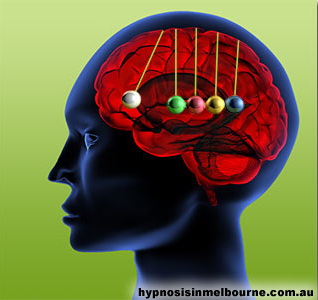Studies reveal the effectiveness of medical hypnosis
My colleague, Chiara Marripodi, recently provided me some very interesting data on the effectiveness of hypnosis, as follows. It’s fascinating to consider the healing properties of what so many consider hocus pocus!
The validity of therapeutic hypnosis as a complementary modality is becoming recognized, as studies prove brainwave activity changes with hypnotic depth. As we move from the high-energy beta wave state to the slower theta waves, we experience perceptual and physiological changes; for example our eyes flutter, breathing is more rhythmic, the body is relaxed and time is distorted.
Interestingly, children and animals tend to reside in the alpha/theta waves, thus are more intuitive and emotional. According to Crawford, a prominent researcher in the hypnotic field, different parts of the brain are activated during hypnosis – some increasing from 13%-28%. Preliminary results also suggest the reward pathway in the brain involving dopamine is stimulated. In fact, research using fMRI shows that hypnosis requires more mental effort, hence individuals are in a heightened state of awareness.
The power of hypnosis coupled with suggestion changes belief systems by reframing the meaning we place on experience. William Tiller, a former Professor Emeritus at Stanford University aptly states, “What we give meaning to we become.”
Studies on the effects of hypnotherapy abound, for example, those tested positive for tuberculosis using the Mantoux test method were able to inhibit the test reaction following hypnotic suggestion.
Interestingly, the use of cooling images for burn victims greatly increased speed of recovery. Hypnotic suggestions given pre and post surgery reduced the need for excessive anesthesia and medication.
This clearly shows that hypnosis has a neuropsychoimmunological effect on the individual; highlighting its versatility, encompassing far more than it’s traditional uses for habit management, fears and weight loss. So what allows us to delve into this part of ourselves? Consciousness is defined as awareness. How many of us are completely aware of every waking moment?
Quantum physics suggests that we are the creator of our own realities; it is our expectations and intention that creates the space around us. Indeed, William Tiller has researched the effects of intention on experimental outcome. In one study he demonstrated it was possible to repeatedly alter the acidity or alkalinity of water using intention. If this is evident with water what does this mean for the human body? We are 70% water after all!
This finding should have you on the edge of your seat, for it tells us that we are more powerful than our beliefs suggest and we significantly impact our lives and those around us. We do not live in a vacuum rather we are entangled one mind with another on a quantum level. Moreover, our emotional minds and physical bodies are tightly intertwined, thus we are co-creators not victims. Society conditions us to believe ego is our true essence.
This conditioning builds our expectations and belief system based on illusion. Consciousness is the beauty of being human. It’s what gives the matter of which we are made the innate intelligence to create. Furthermore, consciousness is found in the animal, plant and microbial kingdom albeit at differing levels.
So if our cells have consciousness what information can we tap into using hypnosis? Consciousness is the energetic thread of our existence. Hypnosis therefore is the gateway to finding our authentic selves.



